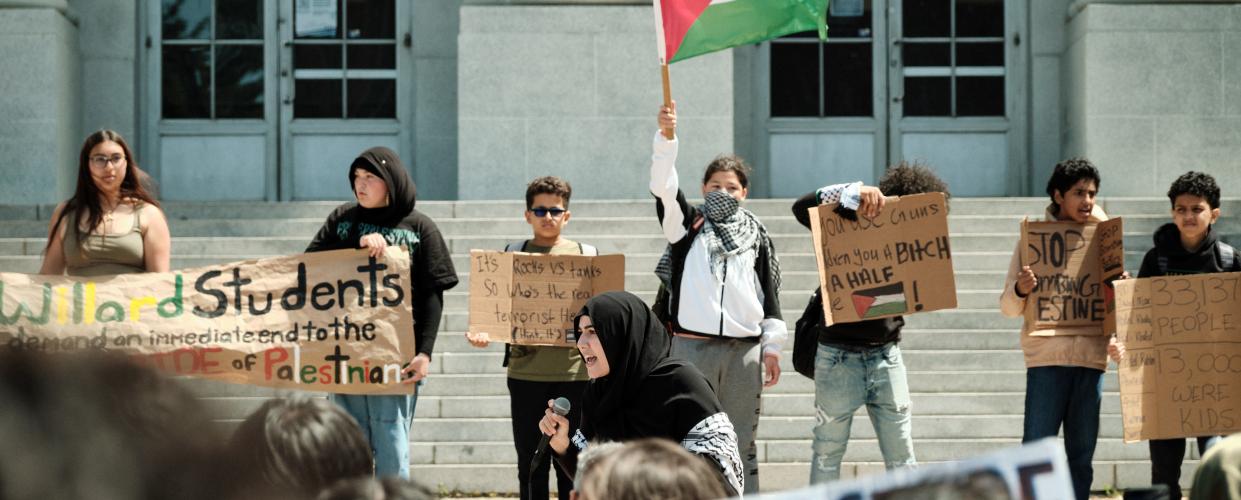
27/04/2024 إنكليزي
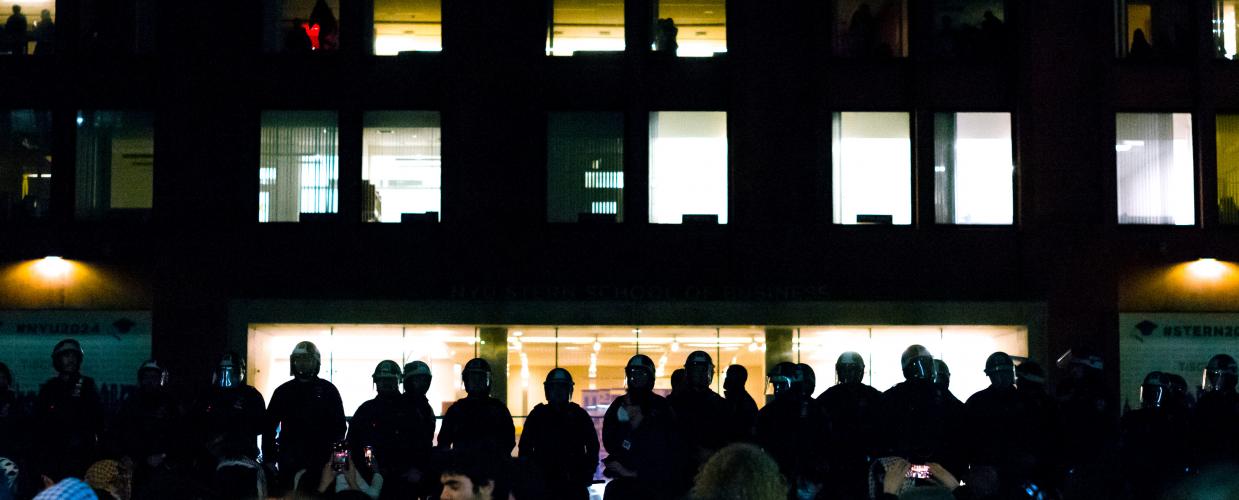
27/04/2024 إنكليزي
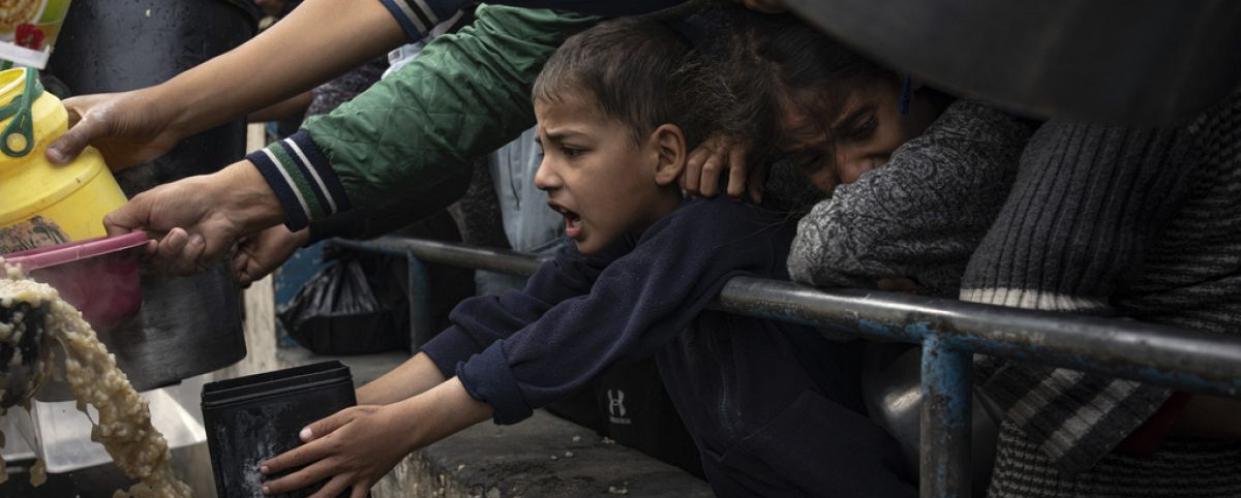
26/04/2024 عربي
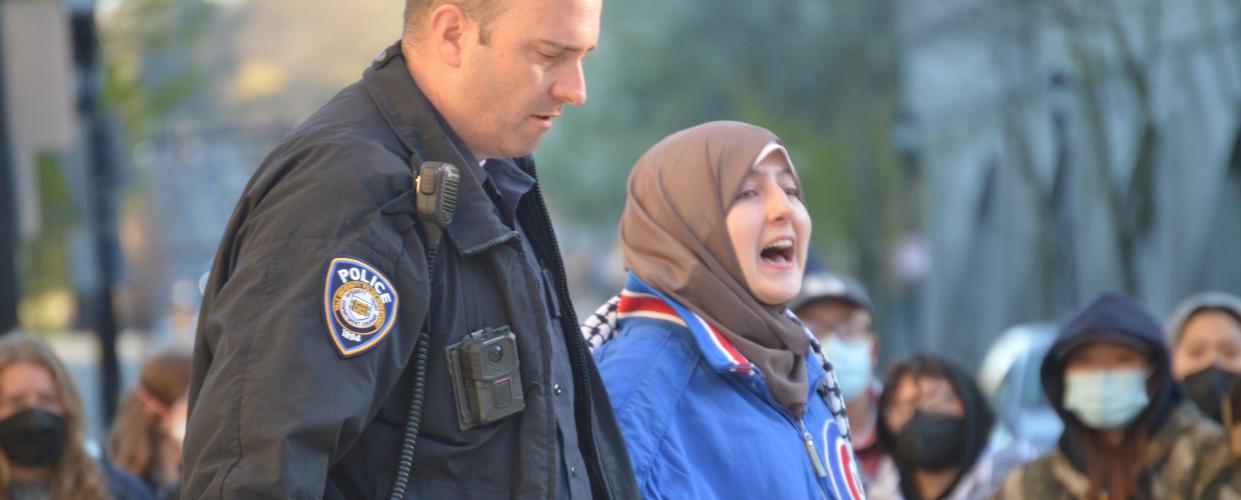
25/04/2024 إنكليزي
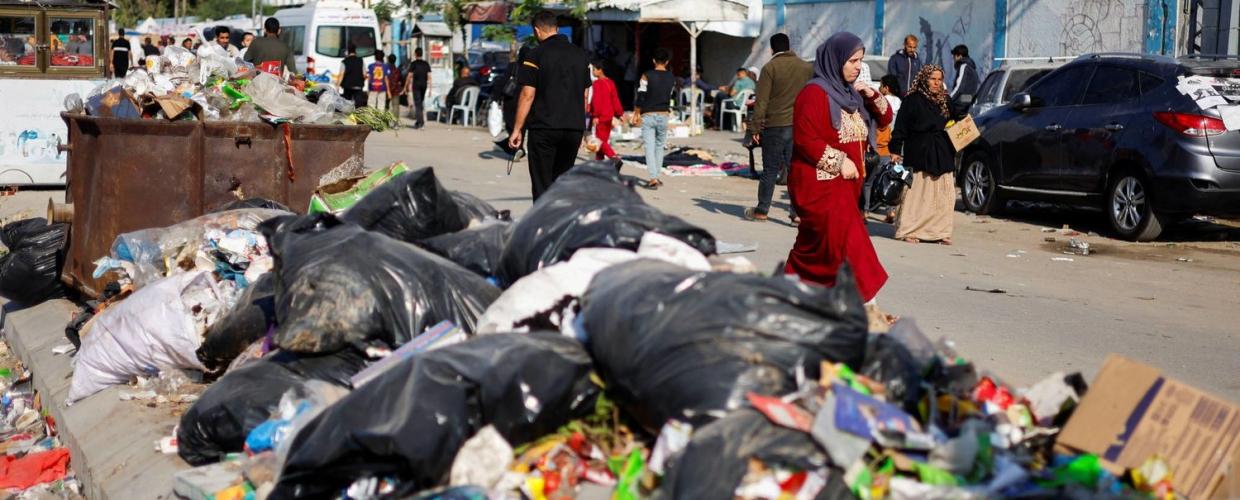
25/04/2024 عربي
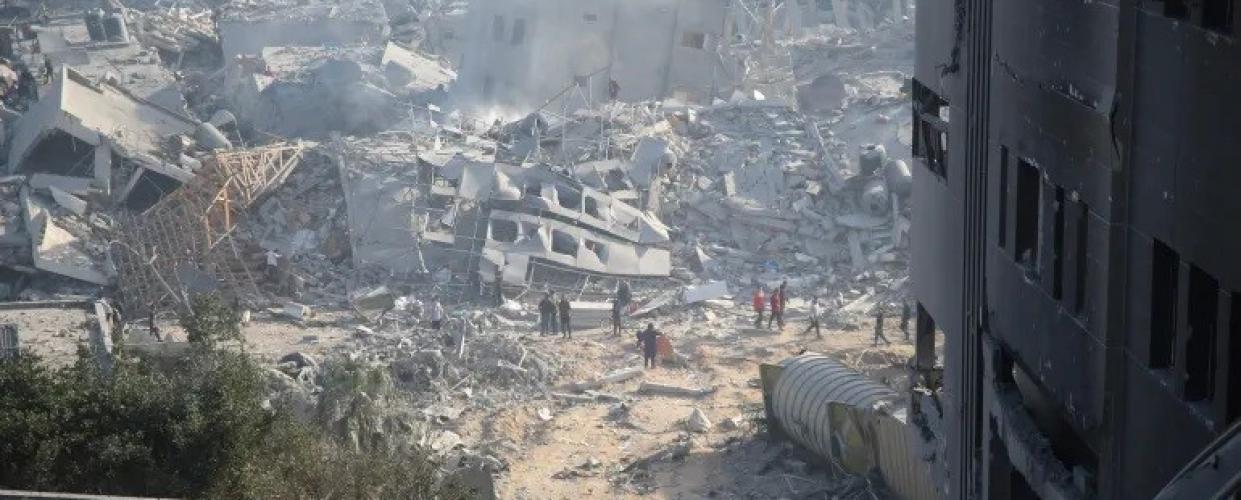
23/04/2024 عربي
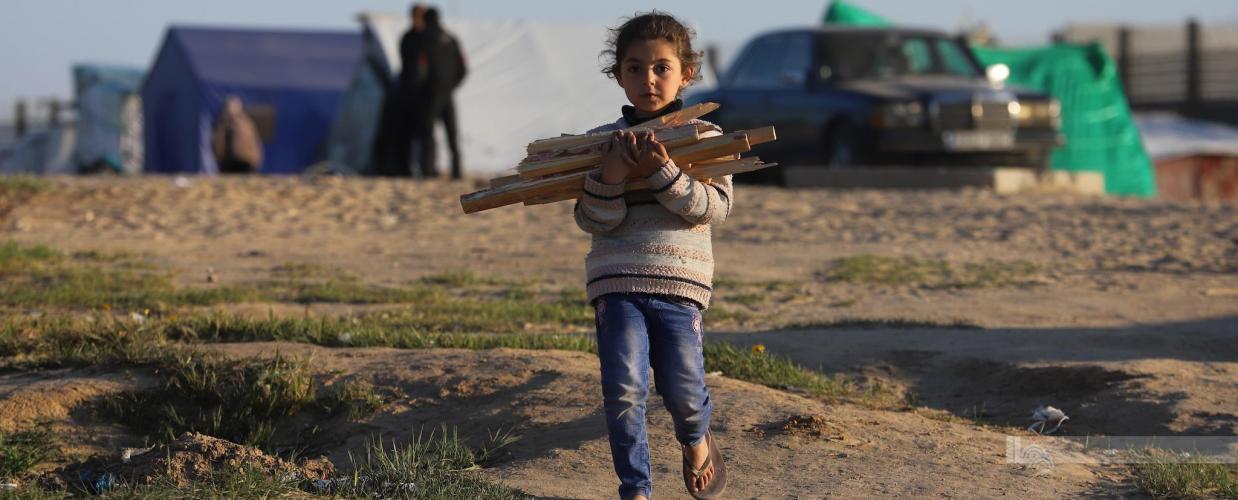
19/04/2024 عربي
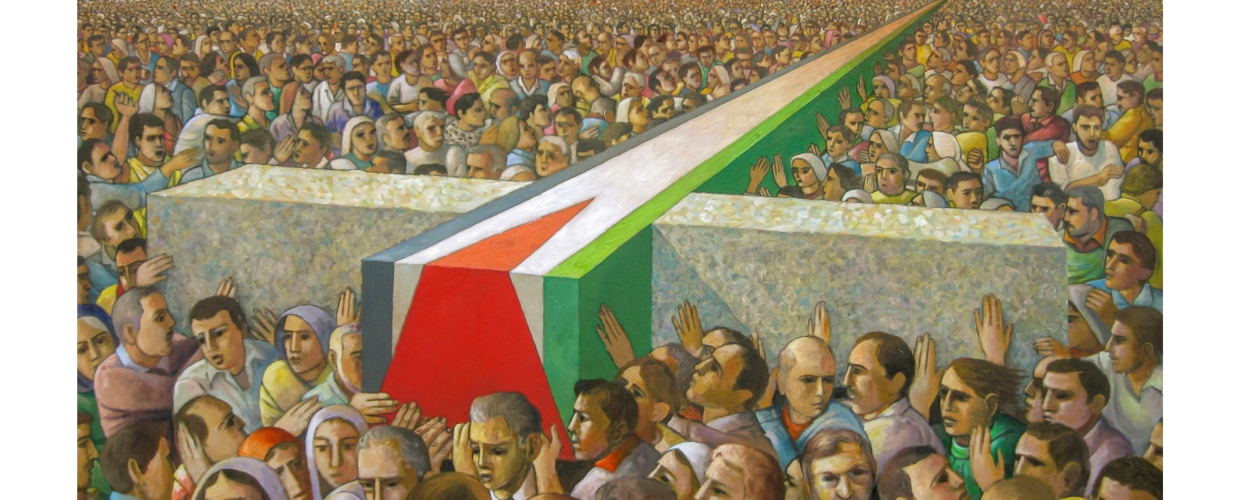
17/04/2024 عربي
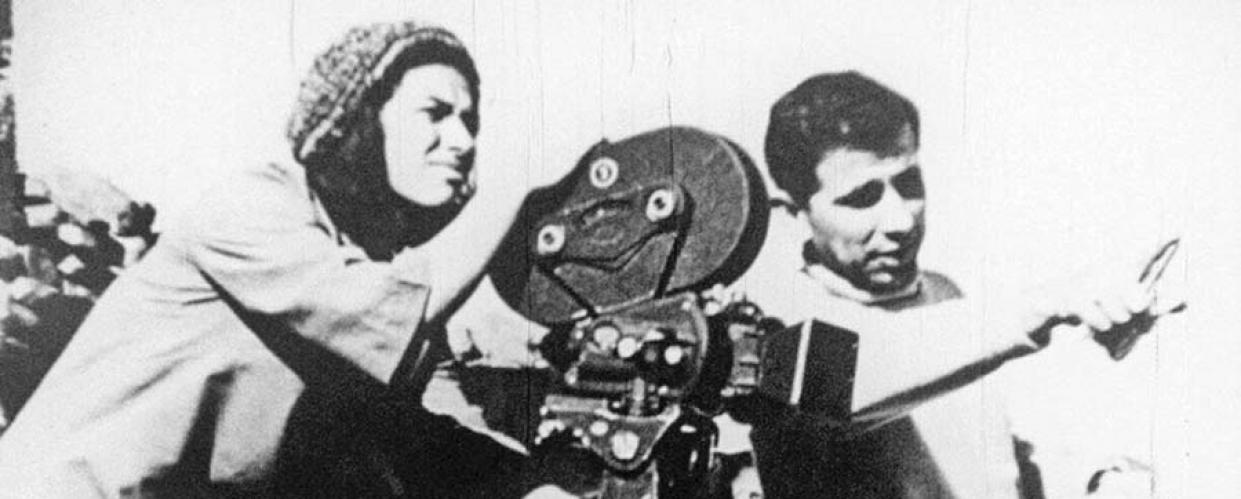
16/04/2024 عربي
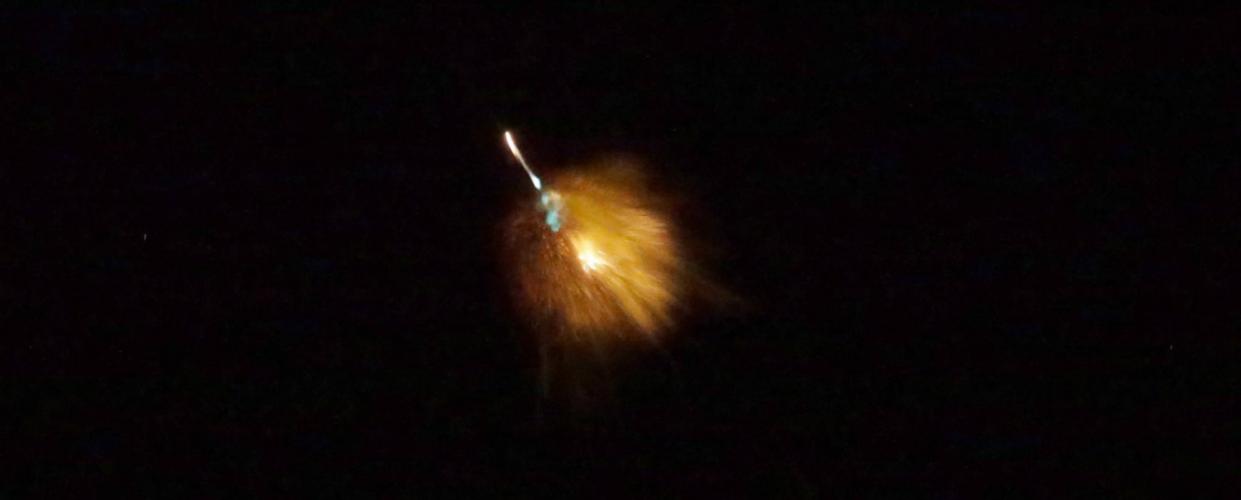
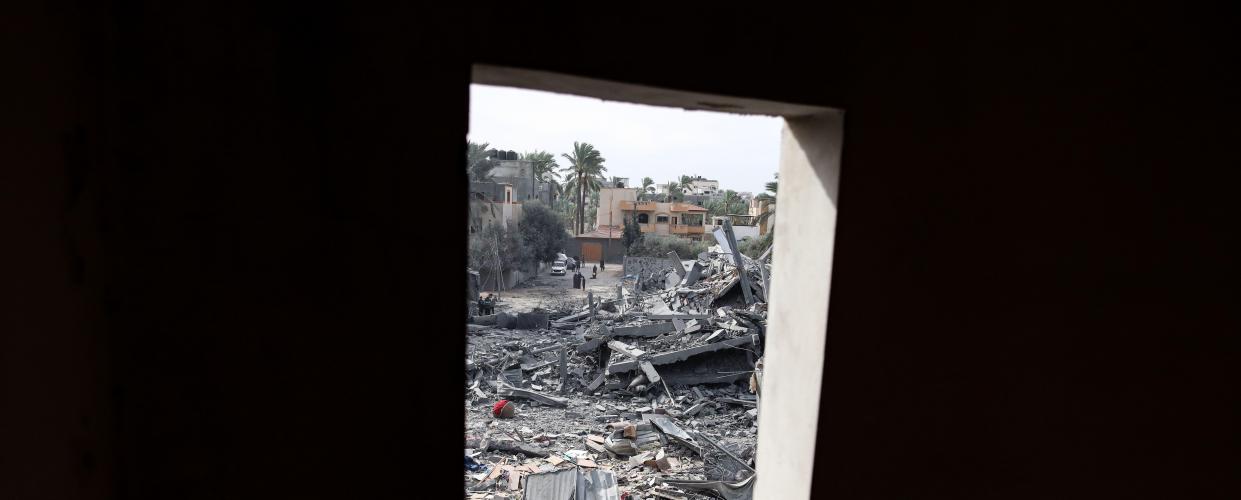
It can be difficult to reflect when the sound of missiles is louder than the voice of reason.
I am a Palestinian who grew up in a refugee camp. I live with the generational trauma that comes from the Israeli atrocities committed against my family and my people. Since Oct. 7, millions like me have wondered how we might elevate our social and moral responsibility to understand Israel's war on Gaza.
Some have used the history of Israeli violence in the region to exonerate Hamas, a designated terrorist organization by Israel and most Western powers, while others argue that demanding a balance of morality from Palestinians — whose very lives are at stake — is unjust. But perhaps the reluctance among some of us to pass moral judgments on Hamas' actions — even if they appear to be wrong or politically disastrous from some sort of detached observer position — is because we can't know how we would act or react if we lived in a concentration camp under the same horrendous conditions.
It is ultimately my view that any attack that does not discriminate between civilians and combatants must be condemned. But I certainly do not condemn the right of the colonized to resist the colonizers by violent means.
Any reasonable analysis of the ongoing and accelerated genocide of the Palestinian people cannot begin on Oct. 7. The initial offensive could be read as a commemoration of the Oct. 6, 1973 war, where Arab armies surprised Israel. It also comes precisely 30 years after the signing of the Oslo Peace Accords in 1993 between the Palestine Liberation Organization (PLO) and the Israeli regime. The enduring legacy of this agreement explains (at least partially) how Israel intensified its oppression and, via successive governments, cruelly escalated its settler colonialism and erasure of the Palestinians while entrenching its apartheid regime.
The peace deal led to the creation of the Palestinian National Authority (PNA), which was meant to provide interim self-government for just five years while negotiations solved outstanding core issues in the conflict. Three decades later, the PNA remains in place but has lost much of its legitimacy, with 60 percent of the West Bank under Israeli control and Gaza under a 16-year-long siege and now facing annihilation. These were 30 years of daily violations of international law by Israeli Occupation Forces, their armed settlers, and their global allies.
In 1998, when I lived in Ramallah, I had a long discussion with Ilan Halevi — a dear late friend and an adviser to the Foreign Minister Nabil Shaath — about the absence of a particular item in the Oslo Accords regarding the cessation of Israeli settlements in the Occupied Palestinian Territories. He asked me to join him at a dinner with Shaath the following week. I went there well-armed with my criticism. Shaath admitted that this issue was the major stumbling block in the negotiations. Because of the power structure, there was no way that Israelis would accept to stop constructing the settlements. He considered it a “big mistake.” He noted that the agreed item in the Oslo Accords, “that no one can change the geography without the consent of the other party,” was so broad that it could be interpreted in all directions. In fact, the poor Palestinian negotiators had relied on trust in the international community to force Israel to stop constructing its illegal settlements.
UN statistics show that, between the years 2000 and 2007, the number of illegal settlers in the West Bank tripled from 110,000 to 450,000. They are now estimated at 800,000. In addition, Israel routinely siphons off water from Palestinian underground aquifers for the use of the settlers while depriving Palestinians of access to their own water. All of these settlements are built on razed Palestinian villages and towns, cemeteries, or farmland.
Between 1999 and 2004, I lived in Occupied Palestine at the peak of the Second Intifada. At the time, I forged the concept of “spacio-cide,” as I was interested in both the question of Palestinian refugees and the political sociology of the conflict.
The Israeli settler colonial project has long been “spacio-cidal” (as opposed to genocidal) in that it targets land for the expulsion of Palestinians. By targeting the space upon which the Palestinian people live, this policy forces and makes inevitable the transfer of the Palestinian population.
Spacio-cide is a deliberate ideology with a unified rationale of more land for Jews and less for Palestinians. It’s a dynamic process that interacts with the shifting context, including the actions of the Palestinian resistance. It’s the culmination of different “cides.” making the Palestinian land unlivable through the immobility of the Palestinians, killing Palestinian leaders (politi-cide), stealing groundwater so necessary for Palestinian agriculture and undermining their potential economic viability (econo-cide). By describing and questioning different aspects of the Israeli military-judicial-civil apparatuses, the spacio-cidal project becomes possible through a regime that deploys three principles: colonization (confiscating more land), separation (between Israeli land and Palestinian land), and the state of exception that mediates between these two seemingly contradictory principles.
Since 2005, the Israeli violence has taken an increasingly cruel turn. challenging all international, humanitarian, and human rights laws. Israeli casualty numbers have become so minimal, while the number of murdered Palestinians has become massive, laying the groundwork for the Israeli colonial project’s intention of launching a genocidal war.
Per Giorgio Agamben, the thick description of the occupation regime shows that the suspension of law and the forsaking of life don’t completely overlap. The denial of Palestinian citizenship and the replacement of the rule of law by a tapestry of regulations, procedures and decrees have set the stage for the regime’s more active and violent disregard for Palestinian life. To give an example of this Israeli brutality, according to UN statistics, from January of 2008 to the end of August of 2023, 6,407 Palestinians were killed and 152,560 injured by the Israeli Occupation Forces and the armed settlers it protects. In contrast, a total of 308 Israelis were killed — a ratio of 21 to 1.
Since Oct. 7, 2023, 1,200 Israelis, including 22 children, were reportedly killed against the nearly 30,000 Palestinians, including more than 11,000 children in Gaza. Several Israeli ministers have publicly advocated for either the expulsion of all Palestinians from Gaza or the murder of all Gazans. Prime Minister Netanyahu has publicly made the call for ethnic cleansing. The people have nevertheless resisted as Israel wages its second war of extermination against the civilian population. Thisis an intentional genocidal campaign that has massacred journalists, nurses, doctors, and UN staff.
It is defined as under international law: “The intent to destroy, in whole or in part, a national, ethnical, racial or religious group, as such.” This is the definition given by the 1948 UN Convention on the Prevention and Punishment of the Crime of Genocide.
Israeli Minister of Defence Yoav Gallant made the country's genocidal intent perfectly clear this past Oct. 9 when he declared: “We are imposing a complete siege on Gaza. No electricity, no food, no water, no fuel. Everything is closed. We are fighting human animals, and we will act accordingly.” There are many other declarations, including those made by Israeli President Isaac Herzog, who said: “There are no innocent civilians in Gaza.” Many scholars and practitioners of international law, conflict studies, and genocide studies released a public statement warning of genocide in Gaza. This ghetto has been under Israeli siege (with the complicity of Egypt) since 2007. There is no sanctuary within the tiny landmass, which is less than the length of a marathon’s distance and only five miles wide. On top of the constant bombing and deployment of chemical weapons, the Israeli regime has cut off food, fuel, water, and electricity, provoking an appalling humanitarian crisis.
On Oct. 9, the concentration camp that was Gaza — under Israeli siege since 2007 — was officially declared an extermination camp. The ongoing Israeli genocide has been made possible because of how the Palestinian resistance project has been understood, while the silence and support of many Western countries have further enabled the ethnic cleansing of the Palestinian people.
Given how ugly and brutal the Occupation has been in the West Bank and in Gaza, why would anyone expect resistance to be pretty?
Political scientist Norman Finkelstein reminds us how ugly the slave revolts in the U.S. were and how Black American sociologist WEB Du Bois and abolitionist Frederick Douglass never criticized their ugliness.
American musician and activist David Rovics is one of many to have likened the events of Oct. 7 to the Warsaw Ghetto Uprising in the spring of 1943. “The Jewish Fighting Organization forced the German Army to take troops away from the front line in the war with the USSR that they were losing in order to deal with this group of half-starved civilians and their homemade weapons,” he describes. No one had expected a handful of Jews to defeat the German Army.
By launching an offensive, Palestinian resistance groups — who continue to pay a heavy price — made it clear that they would rather die quickly fighting for justice and freedom than suffer a slow death on their knees in humiliation. This reality has been met with the silence of the overwhelming majority of Western media outlets, scholars, and politicians.
The Palestinians — after decades of Arab and international silence vis-à-vis the continuous Israeli settler colonial and apartheid project act — struck out in a game-changer. Hubris has finally caught up with the Israeli regime and its Arab allies. The Israeli leaders long thought themselves invincible and repeatedly underestimated their enemies. We can roughly speak of a division within the international community: the Global North — heavily dominated by the Israeli lobby — has mostly sided with the Israeli regime’s ethnic cleansing of the Palestinian people (with perhaps the exceptions of Spain, Scotland, and Ireland) while the Global South, including the heavyweights of Russia, China, and Iran, are in favor of permanent ceasefire and a peace process.
The pro-Palestine demonstrations — despite some bans — were colossal in almost all major cities worldwide, including in the West. These increased significantly following the Israeli bombardment of al-Ahli Arab Hospital in Gaza — founded in 1882 and run by the Anglican Church — which killed nearly 500 Palestinians, triggering global outrage at the slaughter of people, many of whom were taking shelter from relentless Israeli bombing of the besieged enclave. Despite independent verification, including the recent articles from the Washington Post and French newspaper Liberation, some Western media and politicians parroted the Israeli lie that the explosion did not come from them.
Some Western countries — particularly Germany and France — don’t merely support the Israeli colonial project. They also ban any demonstrations against genocide while banning Palestinian flags and kufiyas. They pretend that it is antisemitic to hold Israel to international humanitarian.
In the following sections, I will advance three factors that can explain the Western pro-genocidal Israeli position: the memory of the Holocaust, the false image of Israel as a secular state, and the image of Hamas as a fanatic organization rather than as a liberation organization.
When it comes to Germany, the best explanation is provided by Esra Özyürek, who points out that German politicians, journalists, and academicians “subcontract” the guilt of the Holocaust to new minority immigrant arrivals, particularly Arab Muslims. The “general German social problem of antisemitism” is projected onto this minority, who are then further stigmatized as “the most unrepentant antisemites” in need of additional education and discipline.
Pankaj Mishra refers to Andrew Port’s Never Again: Germans and Genocide after the Holocaust to better understand the widespread indifference in Germany to the fate of the Palestinians in Gaza. Examining the German response to mass killings in Cambodia, Rwanda, and the Balkans, Port suggests that the Holocaust “may have unwittingly desensitized Germans. The conviction that they had left the rabid racism of their forebears far behind them may have paradoxically allowed for the unabashed expression of different forms of racism.” In Germany, some prizes were canceled, such as for Palestinian novelist Adania Shibli and Russian American journalist and writer Masha Gessen. Gessen was awarded the prestigious Hannah Arendt prize for political thought; the awards ceremony, however, was canceled because, in a Dec. 9 essay, the author had compared Gaza before 7 October to the Jewish ghettoes of Nazi-occupied Europe. Samantha Hill rightly argued that Arendt, who was critical of the nation-state of Israel from its founding, would not qualify for the Hannah Arendt Prize in Germany today.
All German political leaders accept that Israel’s right to exist is equal to Israel’s right to annihilate the Palestinian people (either en masse, as in Gaza, or slowly, as in the West Bank). Gaza remains an Occupied Territory under the Fourth Geneva Convention, giving Israel a primary responsibility for protecting the occupied civilian population. This framing makes Israel's 'war' discourse and the 'right of self-defense' inapplicable.
This does not concern only politicians who care about groups of interests necessary for their funding and reelection but also many academics. Today, we can read more criticism about the Israeli genocide in Gaza in Haaretz than in mainstream American, Canadian, or European newspapers. Even the Israeli Sociological Association is more critical of the Israeli violation of international laws than other European academic associations. In a twisted turn of events, we recall how Robert Badinter rightly enacted the abolition of the death penalty in France in 1981, while today, his wife — Élisabeth Badinter, a so-called philosopher and feminist — espouses her support for a collective death penalty against the people of Gaza.
Needless to say, in the West, there are handfuls of honest scholars and human rights defenders, such as Craig Mokhiber, director of the New York office of the UN High Commissioner for Human Rights. He resigned on Oct. 31 with a scathing resignation letter, blasting the UN and Western complicity in Israeli abuses. We’re also witnessing how — despite universities’ institutional support for the Zionist regime — university students demonstrate strong support for the struggle of the Palestinian people. And, over the past few weeks, we have seen thousands of Western scholars and writers denounce the war on Gaza and call for an end to the Occupation, despite the witch-hunt that has been conducted since Oct. 7 by the Israeli lobby and its allies. In so-called democracies such as the UK, France, Canada, and Germany, a researcher posting against genocide on Facebook and X can be considered an apologist for terrorism.
Today, Western political authorities rely on so-called moderate Arab leaders to pacify the Palestinians, while this everyday settler colonial project evolves into industrial genocide. ’They relied on the Saudi-Israeli normalization deal, which would have forced the Palestinians into unacceptable conditions. Just one week before Oct. 7, U.S. National Security Advisor Jake Sullivan said arrogantly, "The Middle East region is quieter today than it has been in two decades.” The American rulers are satisfied when Palestinians die and suffer in silence, away from the cameras. Hence, one of the hard lessons of Oct. 7 was the sense of sham stability in the Middle East, the failure of imagination, and how the lack of a solution to the Palestinian cause could bring the region to the brink of an abyss.
For many in the West, Israel is a secular country that can do no wrong. However, if we look at one indicator alone — the expansion of illegal settlement in the Occupied Palestinian Territories — one will quickly realize that the Israeli leaders, both secularists and religious fanatics, both leftists and rightists, have engaged in this land theft. I recall a public talk by Alain Touraine at the School for Advanced Studies in the Social Sciences (EHESS) in Paris in 1993, where he evoked the Israeli “miracle” of absorbing 150,000 Russian Jews in a lapse of one year. When I contested this “miracle” with the fact that all of these Europeans were settled illegally in Occupied Palestine, he replied: “Those migrants will change the equation: grown up in the Soviet Union, they are secular, so they will support the peace process.”
Demonstrating perverse naiveté, he didn’t realize that these illegal settlers would establish some of the most fascistic political parties in the Israeli regime — such as Yisrael Beiteinu (“Israel Our Home”) — and have allied themselves with the religious settlers movement in the West Bank. The reading of the Arab-Israeli conflict remains dominated by an Islamophobic secularism that is obsessed with Hamas. By considering it to be ISIS, Hamas become a target to be eliminated, while the Palestinian Gazians are homo sacer that can be murdered without holding their killers accountable.
Some contest that Hamas represents an important portion of the Palestinian people. Hamas has, indeed, large support from some Palestinian people, both within Occupied Palestine and in the diaspora. Hamas was elected by the Palestinian people in 2006, and they were clear in their ideology to those who elected them. I even saw some Christian friends cast their votes in their favor. Over the last five years, they still win the student body elections in Palestinian universities in the West Bank. Their popularity comes from the fact that there is no political solution to the genocidal Israeli regime, while there’s the added necessity of inflicting a cost on the ongoing Israeli settler colonial project. This leaves the Palestinians with Hamas as the only group actually working for their interests in any real way. Those who contest the actions of Hamas should tell us why the “moderate” Palestinian Authority was incapable of forcing Israel to give up on the West Bank and end the Occupation. This authority had no cards in its hands after its leaders became dependent on their unconditional renunciation of violence against Israel in exchange for their livelihoods and aid from Western and Arab countries.
I don’t see any settler colonial project that was ever dismantled only through peaceful negotiations or before establishing a certain balance of power… often at the cost of many lives. Algeria's noble war of independence claimed 1.5 million lives. Palestinians have tried the Gandhian nonviolence approach for at least 30 years since the Oslo process, with no results.
History, therefore, cannot be taken as isolated events but as movement and contingency. States and societies respect strong actors, for better or worse. The emotional and psychological side of Oct. 7 is very important for those who have been defending justice while seeing so many cruel violations of humanitarian and human rights laws by Israel. It’s a game changer of the current status quo of the Palestinian question, but we still don’t know in which direction things will go.
As the Palestinian resistance now becomes so important (compared to the weak PNA in Ramallah), I’m still hoping that this war might force Israel and the international community to push for a fair political solution (there have been countless Western declarations about the necessity of two-state solution based on the 1967 lines, which was already accepted by Hamas in 2017) or at least to have a dialogue between equal partners. This is consistent with my recent call for a dialogical liberal project, a call against intolerance in debates related to social and political issues.
However, I am afraid that another scenario is also possible: another Nakba, mass killing and displacement of Palestinians, and the acceleration of fascist trends akin to Sarajevo in 1914 or Kristallnacht in 1938. I dread what seems to be the more certain outcome in Gaza.









